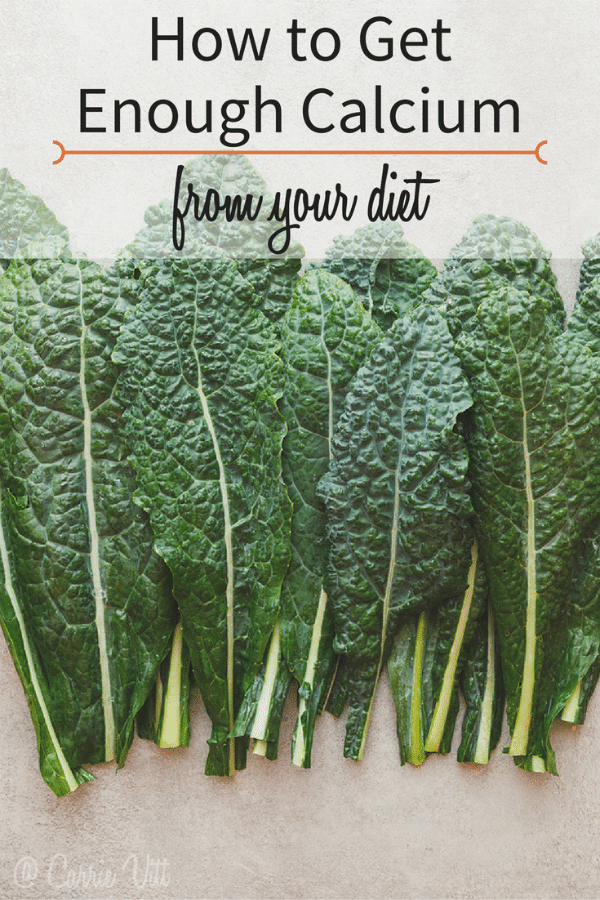Our lives depend on calcium. Calcium is required for all nerve impulses, muscle contraction, bone and teeth support, reducing inflammation, white blood cell function and even blood coagulation.
We’re constantly bombarded with the suggestion to “get more calcium.” In truth, most of us get enough calcium – but we’re missing the cofactors that allow the body to absorb or use it.
For example, research has shown calcium alone cannot build strong bones. You also need other nutrients like vitamins A, C, D, and K, magnesium, phosphorus, manganese, amino acids, and enzymes for building bone.
Here are the 7 cofactors needed in order for the body to use calcium properly:
1. Systemic PH – If the blood is too acidic, the body will take calcium from the bones.
2. Hydration – Proper hydration ensures blood can transfer the calcium.
3. Other Minerals – We also need potassium, zinc, boron, copper, manganese for proper use of calcium.
4. Vitamins – For example, Vitamin D works with PTH (parathyroid hormone) to increase calcium in our blood stream. It increases absorption through our gastro-intestinal tract.
5. Fatty Acids – Fatty acids are necessary for transport of calcium across the cell membrane. They also help increase calcium in tissues.
6. Digestion – Calcium is only absorbed in an acidic environment and it requires the correct amount of hydrochloric acid (aka: stomach acid) for uptake. Calcium and iron need a 4-4.5 PH in the stomach for the minerals to be pulled out of the food and utilized properly by the body.
7. Hormones – different hormones are needed to regulate calcium in the body. For example, the parathyroid needs to send out the correct hormones in order to properly regulate calcium metabolism in the body.
As you can see, it’s a more complicated process than simply popping a calcium supplement!
And, if you choose to take a calcium supplement, it’s important to realize there are different kinds on the market. The three most common are calcium citrate, calcium lactate and calcium carbonate. Calcium carbonate is the most common, but it’s not easily digested and as a result is poorly assimilated by the body. This is why it’s important to talk to your health practitioner so they can help you find the best supplement for your body. Two of my favorite brands are Standard Process and Biotics.
I know all of this info can be a bit overwhelming, so here are 4 steps you can take to help your body utilize the calcium in your diet:
- Reduce your sugar, alcohol and caffeine consumption; these three foods reduce calcium in the system.
- Take steps to reduce your stress so your digestive system can produce the proper amount of stomach acid to utilize the calcium in your diet.
- Don’t exercise too much to ensure you don’t deplete your calcium stores.
- Make sure you’re getting the correct form of calcium your diet. Foods “enriched” with calcium are usually using a synthetic form the body can’t use. Bioavailable calcium from raw dairy, properly prepared nuts and seeds, oily fish, and greens is a great way to get calcium in the diet.







2 Comments